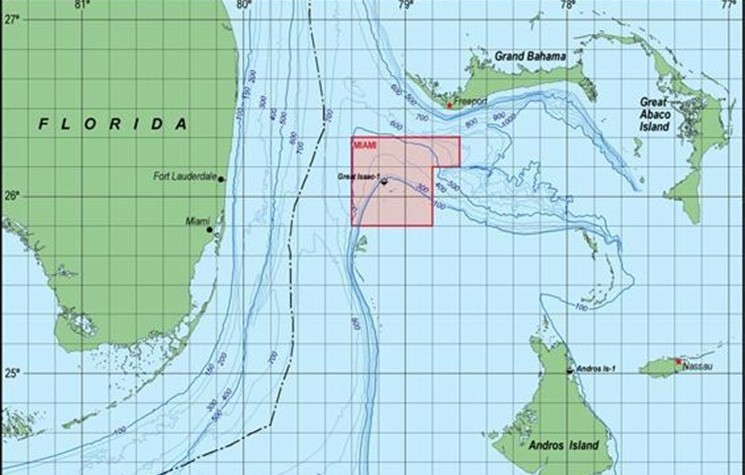Bahamas Petroleum secures key extension to southern licences

Shares in Bahamas Petroleum Company enjoyed a near 18 per cent gain in morning trading on Monday after the AIM-quoted explorer announced an extension on its southern licences. The Isle of Main-based company confirmed that its licences have been extended until Q2 2018 with the date to start drilling pushed back until April 2017, buying the company important time to find the partners and funding required to drill its first wildcat in these frontier waters.
This is not the first time that the company has had its licences extended; political uncertainty in the wake of the fall-out from BP’s Macondo disaster in the US Gulf of Mexico stalled activity for a number of years. The four southern licences – known as the Bain, Cooper, Donaldson and Eneas licences – were initially awarded in 2007.
They were extended to 2012 in 2008 and renewed into their second exploration period in July 2013. The company has been acknowledged as having satisfied all obligations under the first exploration period based on its acquisition and processing of modern 2D and 3D seismic data.
Now the second exploration period has been extended until 2018 and it has been confirmed that the southern licences are commercially co-joined so that meeting exploration work obligations in any one licence area means satisfying work obligations across all of them.
Importantly the southern boundary of the licences have been formalised up to The Bahamas-Cuba Maritime boundary and the licences have been grandfathered under the current Petroleum Act, de-risking the project from future political or regulatory tinkering. The long-awaited revised Petroleum Act has seen its second reading postponed: it will be presented to the House of Assembly shortly.
CEO Simon Potter said the extension now gives the company “an unambiguous marker for future activity: to commence our first exploration well by April 2017, and a clear period of time in which to both secure a suitable farm-in partner and undertake the necessary preparatory work to ensure safe and responsible drilling operations”.
The company is hoping the clarity afforded by these developments will support its efforts to bring in farm-in partners ahead of drilling. Potter said discussions with prospective partners were “active and ongoing”.
The company remains keen to extend its portfolio here. BPC had previously submitted applications for five new licences but this how now been reduced to three – the Andros, Islamorada and Zapata applications – and exclude the proposed Cay Sal National Marine Reserve.
These licences are designed to be on trend with plays identified in the southern licences. It also holds 100 per cent of a single licence in the northern waters – the Miami licence – but the company doesn’t intend to commit to a second exploration period here unless its obligations are deferred.
The company ended 2014 with a cash balance of more than US$10 million. The company says it’s confident that that existing capital reserves and a tight rein on costs will allow it to continue in business for “a number of years to come”.
The big ticket item, however, will be the first well in the southern licences. Lower oil prices mean lower drilling costs, which helps reduce the price tag on the deepwater well – but the company is going to need to find a partner with deep pockets to push ahead with this. Investors remain keen for news on this front.
Comments (0)